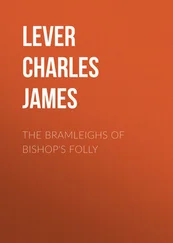Charles Lever - The Daltons; Or, Three Roads In Life. Volume I
Здесь есть возможность читать онлайн «Charles Lever - The Daltons; Or, Three Roads In Life. Volume I» — ознакомительный отрывок электронной книги совершенно бесплатно, а после прочтения отрывка купить полную версию. В некоторых случаях можно слушать аудио, скачать через торрент в формате fb2 и присутствует краткое содержание. Жанр: literature_19, foreign_antique, foreign_prose, на английском языке. Описание произведения, (предисловие) а так же отзывы посетителей доступны на портале библиотеки ЛибКат.
- Название:The Daltons; Or, Three Roads In Life. Volume I
- Автор:
- Жанр:
- Год:неизвестен
- ISBN:нет данных
- Рейтинг книги:4 / 5. Голосов: 1
-
Избранное:Добавить в избранное
- Отзывы:
-
Ваша оценка:
- 80
- 1
- 2
- 3
- 4
- 5
The Daltons; Or, Three Roads In Life. Volume I: краткое содержание, описание и аннотация
Предлагаем к чтению аннотацию, описание, краткое содержание или предисловие (зависит от того, что написал сам автор книги «The Daltons; Or, Three Roads In Life. Volume I»). Если вы не нашли необходимую информацию о книге — напишите в комментариях, мы постараемся отыскать её.
The Daltons; Or, Three Roads In Life. Volume I — читать онлайн ознакомительный отрывок
Ниже представлен текст книги, разбитый по страницам. Система сохранения места последней прочитанной страницы, позволяет с удобством читать онлайн бесплатно книгу «The Daltons; Or, Three Roads In Life. Volume I», без необходимости каждый раз заново искать на чём Вы остановились. Поставьте закладку, и сможете в любой момент перейти на страницу, на которой закончили чтение.
Интервал:
Закладка:
To see this old house of his fathers, to behold with his own eyes the seat of their once greatness, became the passion of the boy’s heart. Never did the Bedouin of the Desert long after Mecca with more heart-straining desire. To such a pitch had this passion gained on him, that, unable any longer to resist an impulse that neither left his thoughts by day nor his dreams by night, he fled from his school at Bruges, and when only ten years old made his way to Ostend, and under pretence of seeking a return to his family, persuaded the skipper of a trading-vessel to give him a passage to Limerick. It would take us too far from our road already a long one were we to follow his wanderings and tell of all the difficulties that beset the little fellow on his lonely journey. Enough that we say, he did at last reach the goal, of his hopes, and, after a journey of eight long days, find himself at the ancient gate of Corrig-O’Neal.
At first the disappointment was dreadful. The proud mansion, of whose glorious splendor his imagination had created an Oriental palace, was an antiquated brick edifice, in front of which ran a long terrace, once adorned with statues, but of which the pedestals alone remained. A few hedges of yew, with here and there the fragments of a marble figure or fountain, showed that the old French chateau taste had once prevailed there; and of this a quaint straight avenue of lime-trees, reaching directly from the door to the river, also bore evidence. The tone of sadness and desertion was on everything; many of the lower windows were walled up; the great door itself was fastened and barricaded in such a way as to show it had been long disused. Not a creature was to be seen stirring about the place, and save that at night the flickering light of a candle might be descried from a small casement that looked upon the garden, the house might have been deemed uninhabited. Perhaps something in the mysterious desolation of the scene had its influence over the boy’s mind; but as hour by hour he lingered in those silent woods, and lay in the deep grass, watching the cloud shadows as they stole along, he grew fondly attached to the place; now losing himself in some revery of the long past, now following out some half-remembered narrative of his mother’s childhood, when she herself dwelt there.
All his little resources of pocket-money expended, his clothes, save such as he wore, sold, he could scarcely tear himself from a scene that filled every avenue of his heart. The time, however, came, when a ship, about to sail for the Scheldt, gave him the opportunity of returning home; and now this was to be his last day at Corrig-O’Neal.
And what a day of conflicting thought was it! now half resolved to approach the house, and ask to see his uncle, and now repelled by remembering all his unkindness to his father. Then marvelling whether some change might not have taken place in the old man’s mind, and whether in his lonely desolation he might not wish once more to see his kindred near him.
He knew not what to do, and evening found him still undecided, and sitting on a little rising spot, from which the view extended over the garden at the back of the house, and whence he had often watched the solitary light that marked the old man’s vigils.
Wearied by long watching and thought, he fell asleep; and when he awoke the light was gone, the light which hitherto had always burned till daybreak! and from the darkness it must now be far from that hour. While Frank wondered what this might mean, he was startled by hearing footsteps near him at least so they sounded on the gravel-walk of the garden, and in a few minutes after the grating sound of a key, and the opening of a small door which led out into the wood. He now perceived that a man was standing at the foot of the knoll, who seemed irresolute and undecided; for he twice returned to the door, once introduced the key, and again withdrew it, as if with a changed purpose. Suddenly he appeared to have made up his mind, for, stooping down, he began to dig with the greatest energy, stopping at intervals to listen, and again continuing his work when satisfied that he was unobserved.
The hour the scene itself the evident secrecy of the man, almost paralyzed the boy with terror; nor was it till long after the turf was replaced, dry leaves and dead branches were strewn over the spot, and the man himself gone, that Frank gained courage to move away. This he did at first cautiously and timidly, and then with a speed that soon carried him far away from the spot. The following day he was at sea; and if at first the strange scene never left his thoughts, with time the impression faded away, till at length it assumed the indistinctness of a vision, or of some picture created by mere imagination.
When he did return home, he never revealed, except to Nelly, where he had been, and the object for which he went; but, even to her, from some strange love of mystery, he told nothing of the last night’s experience: this was a secret, which he hoarded like a miser’s treasure, and loved to think that he only knew of. The stirring events of a schoolboy’s life, at first, and subsequently the changeful scenes of opening manhood, gradually effaced the impression of what he had seen, or merely left it to all the indistinctness of a dream.
And thus are thoughts often sealed up in the memory for years unnoticed and unknown till, after a long interval, they are all called forth, and become the very pivots on which turns our destiny.
CHAPTER IV. THE ONSLOWS
THE little town of Baden was thrown into a state of considerable excitement by the unexpected arrival we have chronicled in a preceding chapter, and the host of the “Russie” reduced to the most uncommon straits to restore the effective of a staff, now brought down to the closest economy of retrenchment. Cooks, waiters, and housemaids were sought after in every quarter, while emissaries were despatched right and left to replenish the larder and provide for the wants of the mighty “Englander.” Nor was all the bustle and commotion limited to within the hotel, but extended throughout the village itself, where many a rustic pony, laid up in ordinary for the winter, was again trimmed and curried and shod, to be paraded before the windows with a scarlet saddle-cloth and a worsted tassel to the bridle, in all the seductive attraction of a palfrey. Even flower-girls made their appearance again with a few frost-nipped buds and leaves; while a bassoon and a triangle, voting themselves a band, gave horrid signs of their means of persecution.
Meanwhile were the fortunate individuals for whose benefit these exertions were evoked, in the most blissful ignorance of all the interest they were awakening. From the first moment of their arrival none had even seen them. Waited upon by their own servants, scarcely heard, not even appearing at the windows, they were unconsciously ministering to a mystery that now engaged every tongue and ear around them. As, however, nothing of secrecy had any share in their proceedings, we have no scruple in invading the presence and introducing the reader to the company.
Sir Stafford Onslow was an immensely rich London banker, who in his capacity of borough member had voted steadily with the Whigs for some five-and-twenty years; supporting them by all the influence of his wealth and family, and who now came abroad, in a pet of sulk with his party, on being refused the peerage. By nature generous, kind-hearted, and affectionate, the constant pressure of a more ambitious wife had involved him in a career to which neither his tastes nor habits suited him. The fortune which he would have dispensed with dignity and munificence he was eternally taught to believe should be the stepping-stone to something higher in rank. All his influence in the City, of which he was justly proud, he was told was a mere vulgar ambition in comparison with that a coronet would bestow on him; and, in fact, having believed himself the leading man of a great section in society, he was led to look upon his position with discontent, and fancy that his just claims were disregarded and denied. Lady Hester Onslow, who having once been a beauty and the admired belle of royalty itself, had accepted the banker in a moment of pique, and never forgave him afterwards the unhappy preference.
Читать дальшеИнтервал:
Закладка:
Похожие книги на «The Daltons; Or, Three Roads In Life. Volume I»
Представляем Вашему вниманию похожие книги на «The Daltons; Or, Three Roads In Life. Volume I» списком для выбора. Мы отобрали схожую по названию и смыслу литературу в надежде предоставить читателям больше вариантов отыскать новые, интересные, ещё непрочитанные произведения.
Обсуждение, отзывы о книге «The Daltons; Or, Three Roads In Life. Volume I» и просто собственные мнения читателей. Оставьте ваши комментарии, напишите, что Вы думаете о произведении, его смысле или главных героях. Укажите что конкретно понравилось, а что нет, и почему Вы так считаете.












